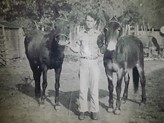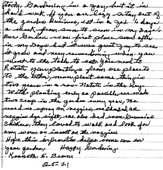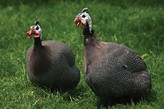By Kenneth E. Brown via Knox Vaughn
In the world that we live in today, we can access unlimited data at the touch of our fingers for gardening through internet searches, you tube videos, and a host of social media avenues. This was not the case for Uncle Kenneth. He lived and gardened in a time when there was no information superhighway. Their source of information was basically word of mouth. They learned from their father who learned from his. I wish to preserve a little of this vast knowledge which is rapidly becoming extinct. If we do not preserve this knowledge, it will be lost forever.
In today’s environment it is unwise to interview someone face to face who is the primary care giver for their terribly ill loved one. So, I resorted to a more modern method that was not available to Uncle Kenneth when he was growing up, the telephone (oh by the way, he does not hear well and neither do I). Within a truly short time on the phone, he agrees to write down his thoughts for me.
Kenneth E. Brown
with Farm Equipment Guinea Fowl, low-cost pest control
From the hands of Kenneth E. Brown (verbatim, well almost).
My daddy bought his farm in 1913. He and my mom farmed and had a garden, they raised all they ate, as time went along, they had 9 children, five girls and four boys. We had about one acre for a garden. I was the only one my mom wanted with her in her garden. We farmed with a mule, turning plow, what we called a Georgia Stock and a covering plow. We broke the ground with a turning plow. I used the Georgia Stock to lay off the rows in the garden, we used chicken fertilizer under the corn only. We had a chicken house. We would shut the chickens up at night to roost and that is where we got the fertilizer. We used cow manure on all the other vegetables, no commercial fertilizer in the garden. I laid off the rows with a Georgia Stock, put the fertilizer out in the laid off rows by hand from a bucket, covered the fertilizer using a hoe. Leveled it off to ground level, then planted the seeds by hand. I used the mule to plow plus mom and I stayed in the garden almost constantly with a hoe. We made sure no weeds or grass was in the garden. We had no tractor or wagon only a ground slide pulled by our mule for transportation. Mom had to plant the garden on Good Friday, but the Irish Potatoes had to be planted on February 14, not 13 or 15, this was a must. You need to rotate your planting from one place to another, never plant the same thing two years in a row. Rotating is the key. With planting as early as possible we made two crops in the garden every year. We used no spray on veggies and we checked all veggies by sight for insects. We also had some guineas, they loved to walk through the garden searching for any worms or insects on the veggies.
If we ate it, we raised it. No grocery bags ever entered our house, no food stamps, no mailbox checks like today. We had to put up lots of food to feed the family all year. We canned 650 to 700 quarts from the garden each year.
Gardening is a joy, but it is hard work. If you are lazy stay out of the garden business. It is a job six days a week from sunrise to sunset. In my day, our garden took priority, but it was great joy to see it grow and extremely rewarding when you sat down at the table to eat.
I hope this information will help someone in your gardening experience.
Happy Gardening, Kenneth E. Brown
It would be a terrible injustice if I neglected to include the notes provided by an eighty-seven-year-old man born and raised in rural Crenshaw County Alabama who had extremely limited opportunities for a formal education due to circumstances beyond his control.
Knox Vaughn, an intern in the 2021 Master Gardener Class, lives in Alpine, AL. For more information on becoming a master gardener, visit www.capcitymga.org or email capcitymga@gmail.com.
 Part of the Alabama Cooperative Extension Service (ACES)
Part of the Alabama Cooperative Extension Service (ACES)


